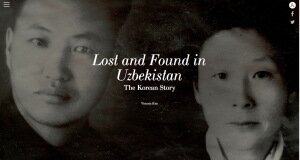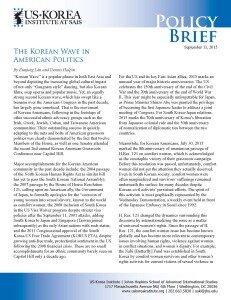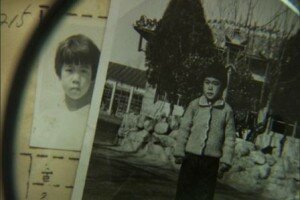After the showing of Lost and Found in Uzbekistan: The Korean Story at SAIS, Victoria Kim’s multi-media presentation has been selected to be published in The Diplomat in a three-part feature. Here are the links to Part I, Part II and Part III.

After the showing of Lost and Found in Uzbekistan: The Korean Story at SAIS, Victoria Kim’s multi-media presentation has been selected to be published in The Diplomat in a three-part feature. Here are the links to Part I, Part II and Part III.

Tuesday, May 24, 2016
6:00 PM – 9:00 PM
Reception beginning at 6:00 PM
Johns Hopkins SAIS, Rome Auditorium
1619 Massachusetts Ave, NW
Washington, DC 20036
Featuring: Victoria Kim, Beijing-based writer and multimedia producer
Moderated by: Jenny Town, Assistant Director, US-Korea Institute at SAIS
Tuesday, May 24, 2016
6:00 PM – 9:00 PM
Reception beginning at 6:00 PM
Johns Hopkins SAIS, Rome Auditorium
1619 Massachusetts Ave, NW
Washington, DC 20036
Featuring: Victoria Kim, Beijing-based writer and multimedia producer
Moderated by: Jenny Town, Assistant Director, US-Korea Institute at SAIS
Tuesday, May 24, 2016 – Lost and Found in Uzbekistan: The Korean Story
With growing confidence in their grassroots power, Korean Americans are now networking further to strengthen their political influence through enlightening themselves about voting rights, mobilizing the community for major elections, and encouraging the next generation to be more visible and active in Washington’s political arena.
 SAIS Lecturer Eunjung Lim and USKI Visiting Scholar Dennis Halpin review the accomplishments and analyze the rising influence of the Korean American community in US domestic politics.
SAIS Lecturer Eunjung Lim and USKI Visiting Scholar Dennis Halpin review the accomplishments and analyze the rising influence of the Korean American community in US domestic politics.
Download the USKI Policy Brief: “The Korean Wave in American Politics,” by Eunjung Lim and Dennis P. Halpin.
A shorter version of this brief was originally published as on op-ed in the Korea Times on September 8, 2015. Read it here.
Dr. Eunjung Lim is currently a lecturer for Korea Studies at School of Advanced International Studies at Johns Hopkins University. Her research interests include comparative studies on democracy and local politics. She has been researching on Korean Americans’ grassroots movement as well.
Dennis P. Halpin, a former US consul in Busan and Asian affairs advisor to the House Foreign Affairs Committee, is a visiting scholar at the US-Korea Institute and an adviser to the Poblete Analysis Group.
 On October 18, 2010, at 6pm, the U.S.-Korea Institute and the Korea Studies Program at SAIS are pleased to host a screening and discussion of Deann Borshay Liem’s latest documentary, In the Matter of Cha Jung Hee, at the Kenney Auditorium (1740 Massachusetts Ave., NW, Washington, DC 20036) at SAIS.
On October 18, 2010, at 6pm, the U.S.-Korea Institute and the Korea Studies Program at SAIS are pleased to host a screening and discussion of Deann Borshay Liem’s latest documentary, In the Matter of Cha Jung Hee, at the Kenney Auditorium (1740 Massachusetts Ave., NW, Washington, DC 20036) at SAIS.
Her passport said she was Cha Jung Hee. She knew she was not. So began a 40-year deception for a Korean adoptee who came to the United States in 1966. Told to keep her true identity a secret from her new American family, this eight-year-old girl quickly forgot she was ever anyone else. But why had her identity been switched? And who was the real Cha Jung Hee? read more …
WPS 09-09: ![]() The Origins of Korean Adoption: Cold War Geopolitics and Intimate Diplomacy, by Eleana Kim, Ph.D. (October 2009). The adoption of children from South Korea to the West has been ongoing since the end of the Korean War in 1953. During the past half century, more than 200,000 children have been adopted into predominantly white families in Western Europe, North America, and Australia. In this paper, Eleana Kim, examines the origins of Korean adoption in the immediate postwar period, showing how the first adoptions of Korean boys by American servicemen gave way to the adoptions of mixed-race, and then full-Korean children into nuclear families. She elaborates on the little-known history of Korean transnational adoption to understand more fully how particular “technologies of intimacy,” including those related to legislation, transportation, communications, and especially mass media and financial sponsorships, facilitated the transfer of children from Korea to the U.S., and how these technologies were informed by and reproduced paternalistic relations between Americans and Koreans in the context of the Cold War.
The Origins of Korean Adoption: Cold War Geopolitics and Intimate Diplomacy, by Eleana Kim, Ph.D. (October 2009). The adoption of children from South Korea to the West has been ongoing since the end of the Korean War in 1953. During the past half century, more than 200,000 children have been adopted into predominantly white families in Western Europe, North America, and Australia. In this paper, Eleana Kim, examines the origins of Korean adoption in the immediate postwar period, showing how the first adoptions of Korean boys by American servicemen gave way to the adoptions of mixed-race, and then full-Korean children into nuclear families. She elaborates on the little-known history of Korean transnational adoption to understand more fully how particular “technologies of intimacy,” including those related to legislation, transportation, communications, and especially mass media and financial sponsorships, facilitated the transfer of children from Korea to the U.S., and how these technologies were informed by and reproduced paternalistic relations between Americans and Koreans in the context of the Cold War.